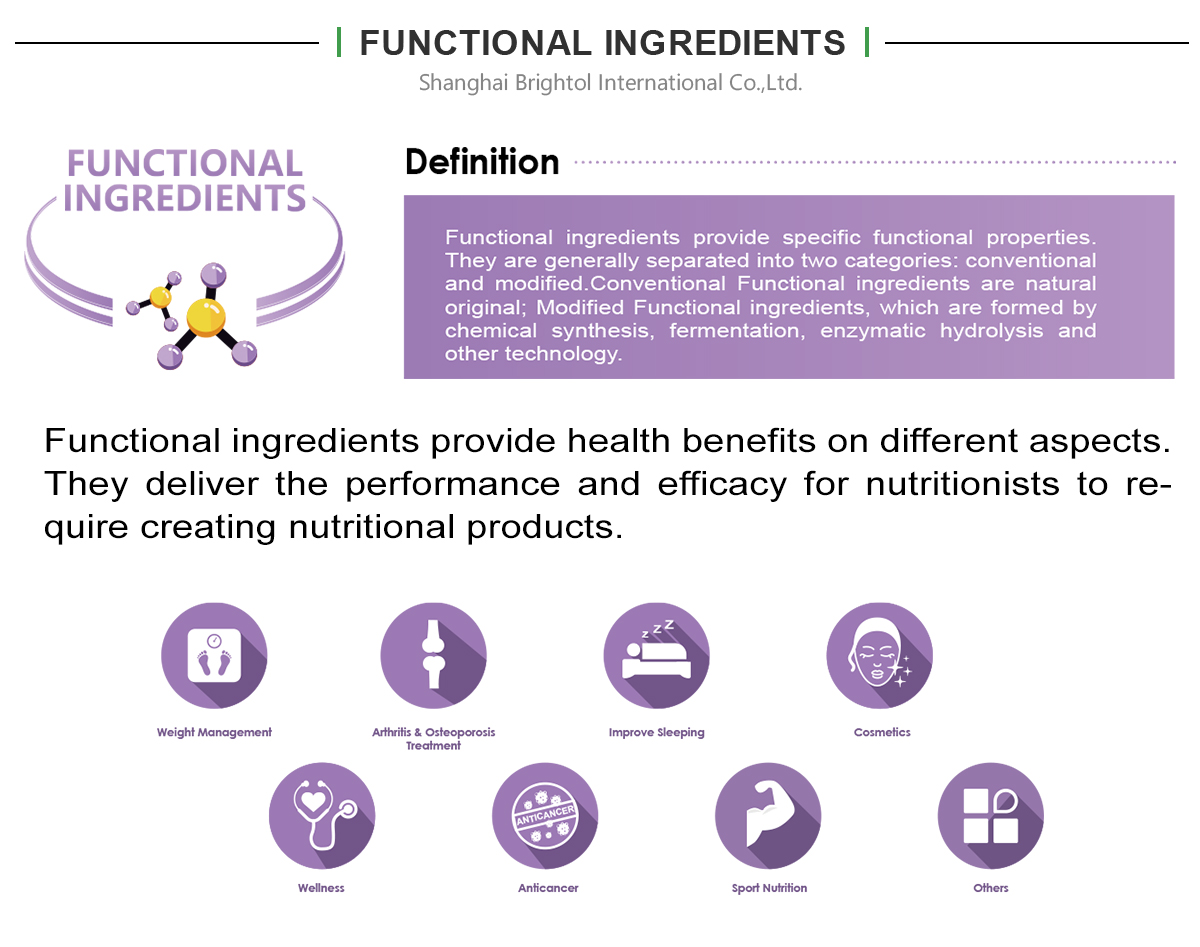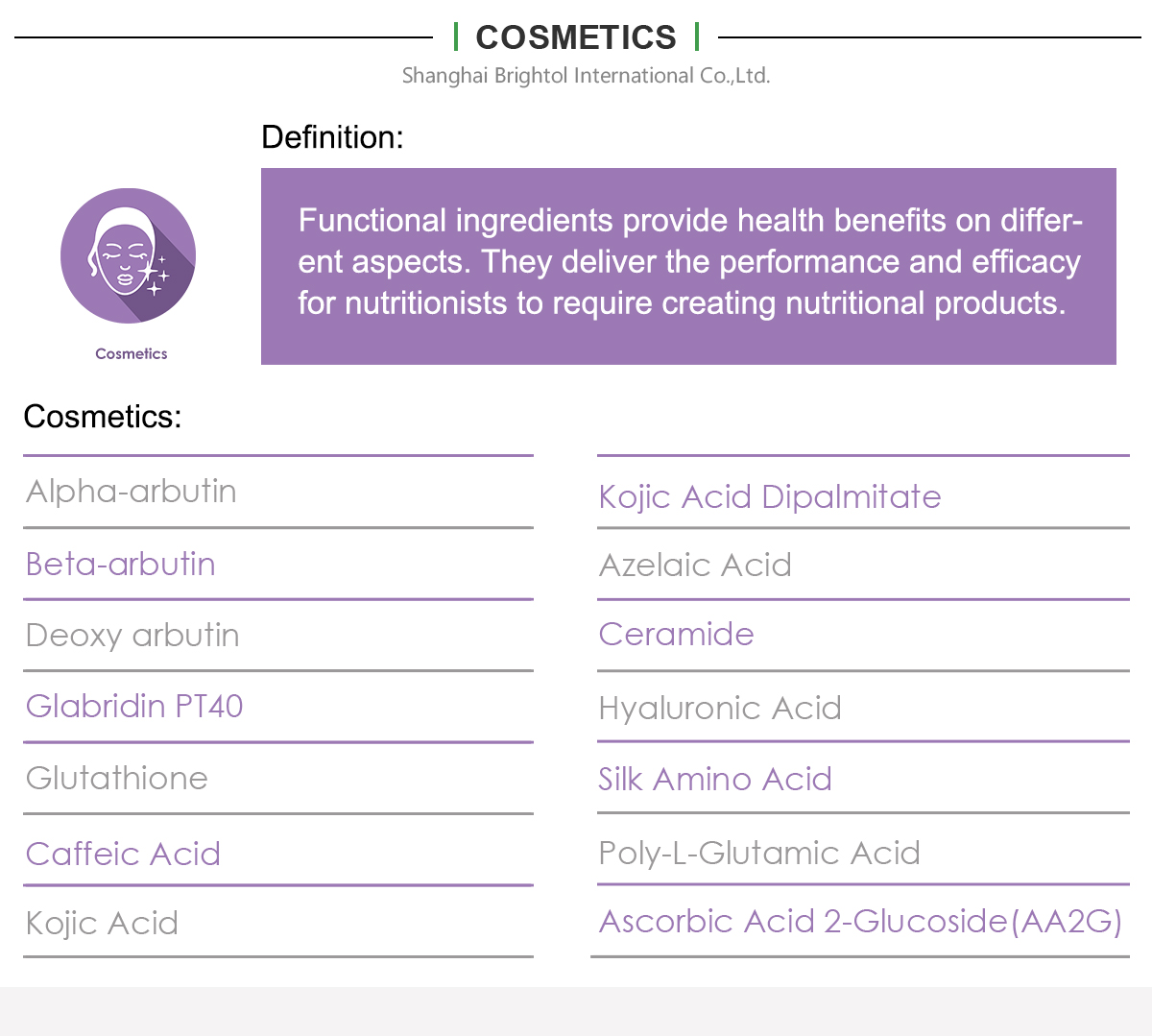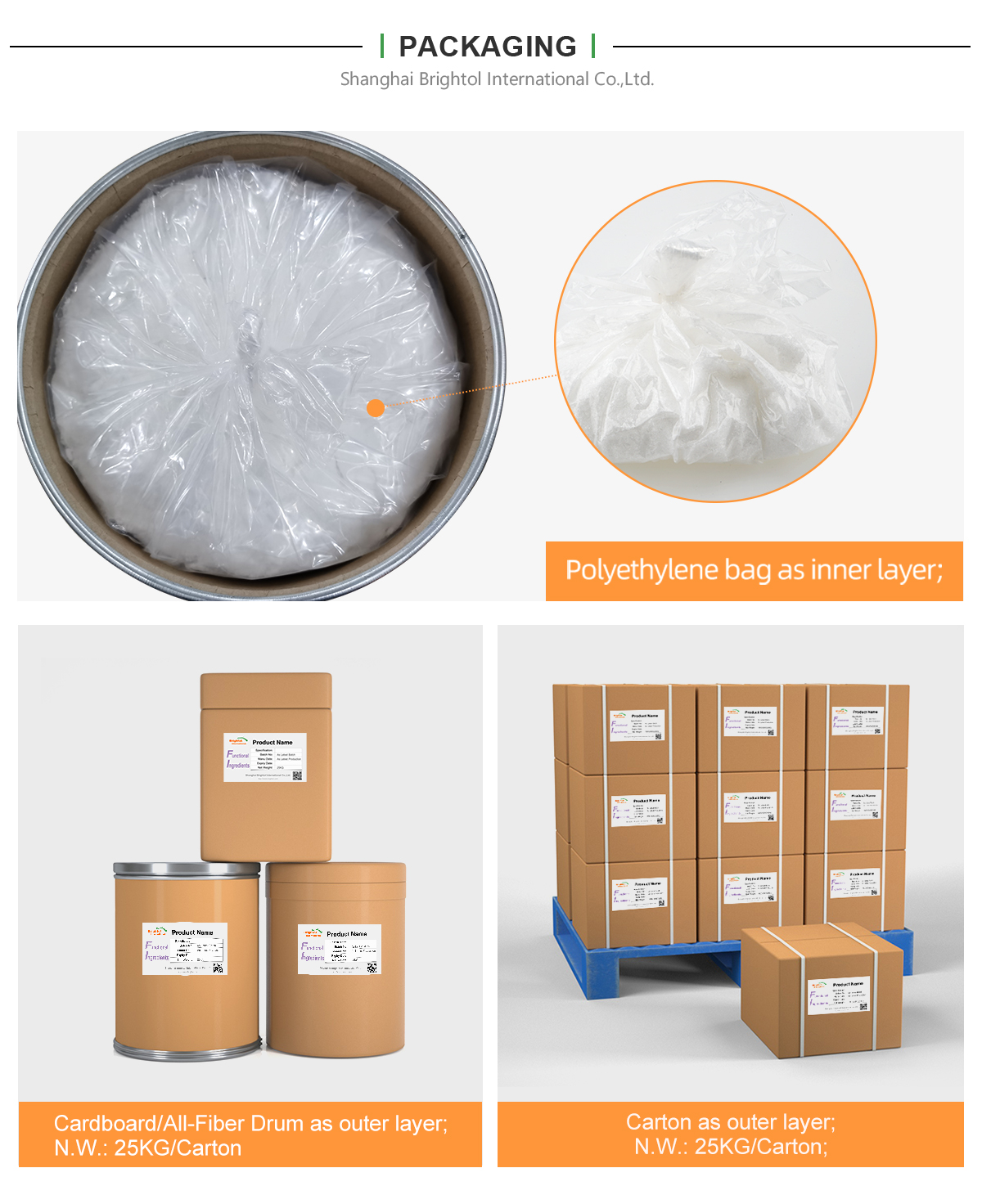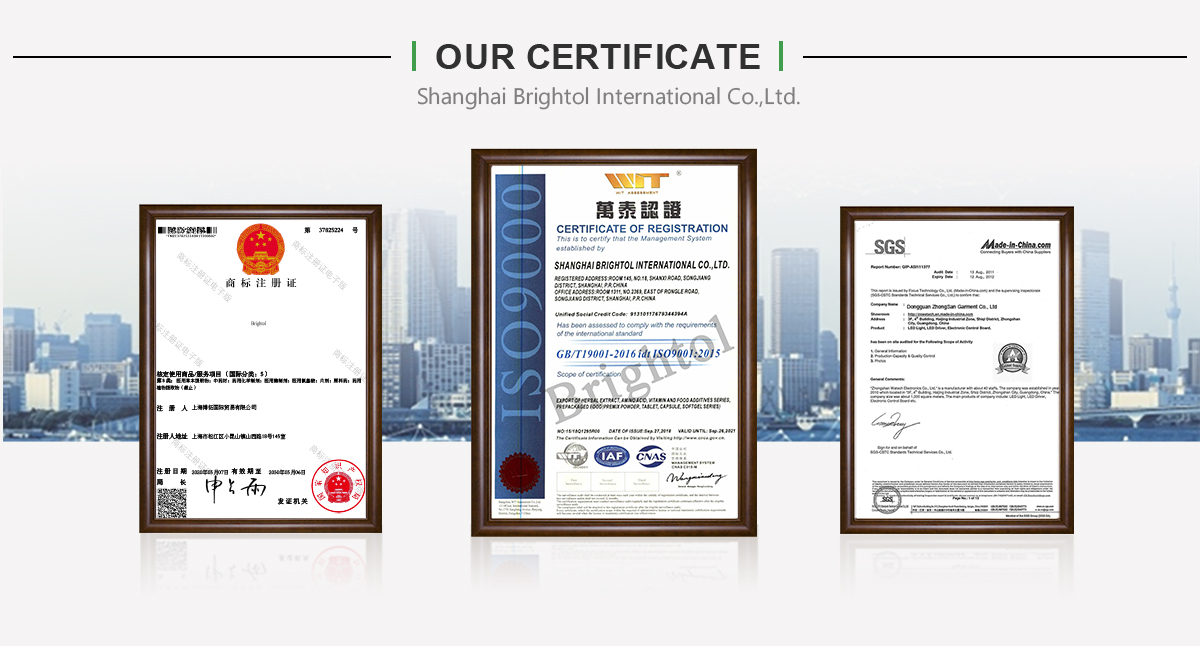

Product Name: Glutathione
Synonyms: 5-L-Glutamyl-L-cysteinylglycine;
gamma-L-Glutamyl-L-cysteinylglycine; GSH
Molecular Formula: C10H17N3O6S
Molecular Weight: 307.32
CAS No.: 70-18-8
EINECS: 200-725-4
Description:
Glutathione, also known as GSH, is a molecule found naturally in your body. It is produced by the liver and by neurons (nerve cells) in the central nervous system. Glutathione is made up of three amino acids: L-cysteine, glycine, and L-glutamate.
For the body to function properly and stay healthy, it's important to have a balance of antioxidants and free radicals (a type of oxygen-containing molecule in the body). When this balance is gone, and more free radicals exist, these molecules can cause what is called oxidative cell damage.
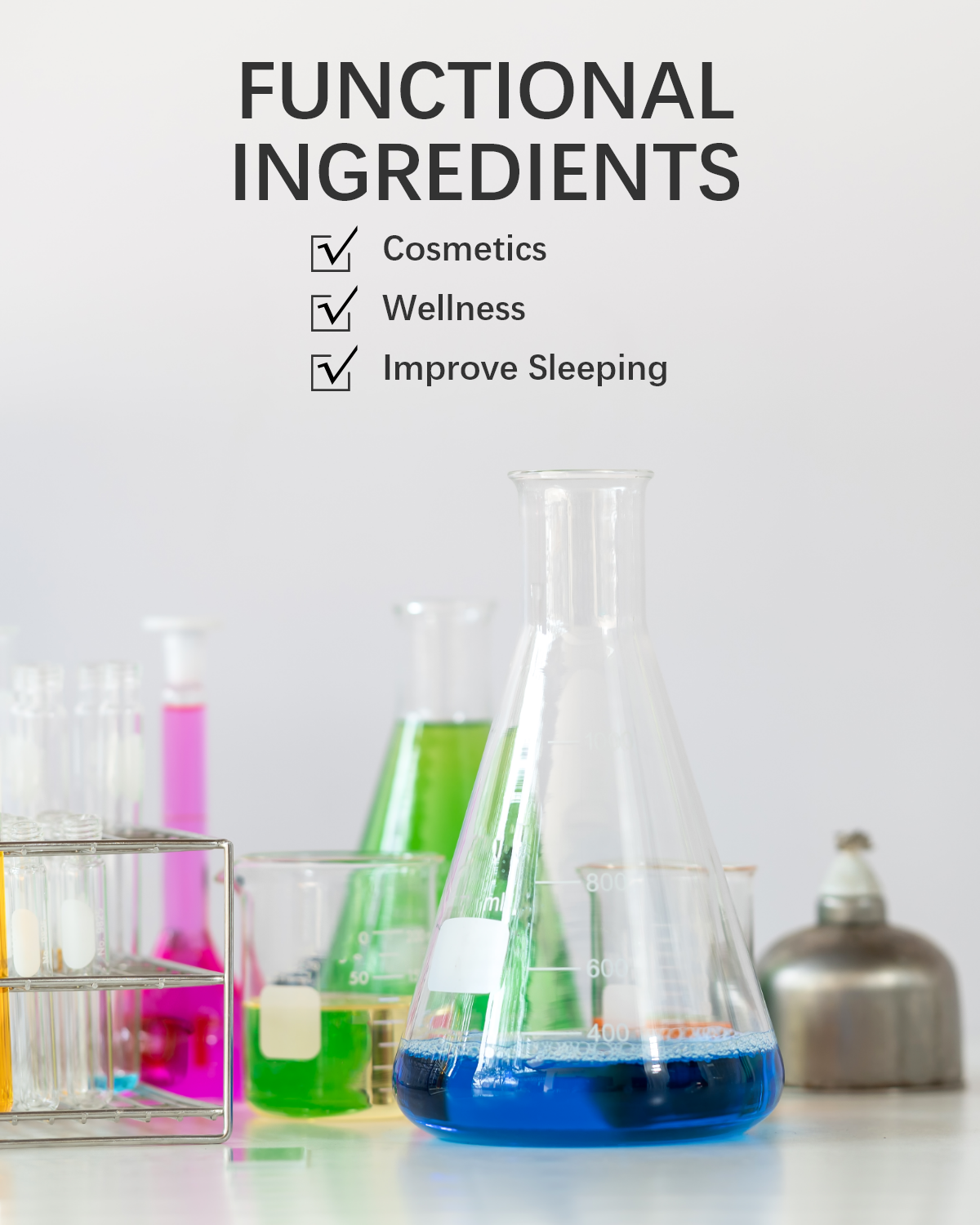

Product Name: Glutathione
Synonyms: 5-L-Glutamyl-L-cysteinylglycine;
gamma-L-Glutamyl-L-cysteinylglycine; GSH
Molecular Formula: C10H17N3O6S
Molecular Weight: 307.32
CAS No.: 70-18-8
EINECS: 200-725-4
Description:
Glutathione, also known as GSH, is a molecule found naturally in your body. It is produced by the liver and by neurons (nerve cells) in the central nervous system. Glutathione is made up of three amino acids: L-cysteine, glycine, and L-glutamate.
For the body to function properly and stay healthy, it's important to have a balance of antioxidants and free radicals (a type of oxygen-containing molecule in the body). When this balance is gone, and more free radicals exist, these molecules can cause what is called oxidative cell damage.
Health Benefits:
1. Hardened arteries (atherosclerosis)
2. Lyme disease
3. Alzheimer's disease
4. Chronic fatigue syndrome
5. Colitis
6. High cholesterol
7. Osteoarthritis
8. Alcoholism
9. Asthma
10. Cataracts
11. Diabetes
12. Glaucoma
13. Heart disease
14. Hepatitis
15. Liver disease
16. Parkinson's disease
